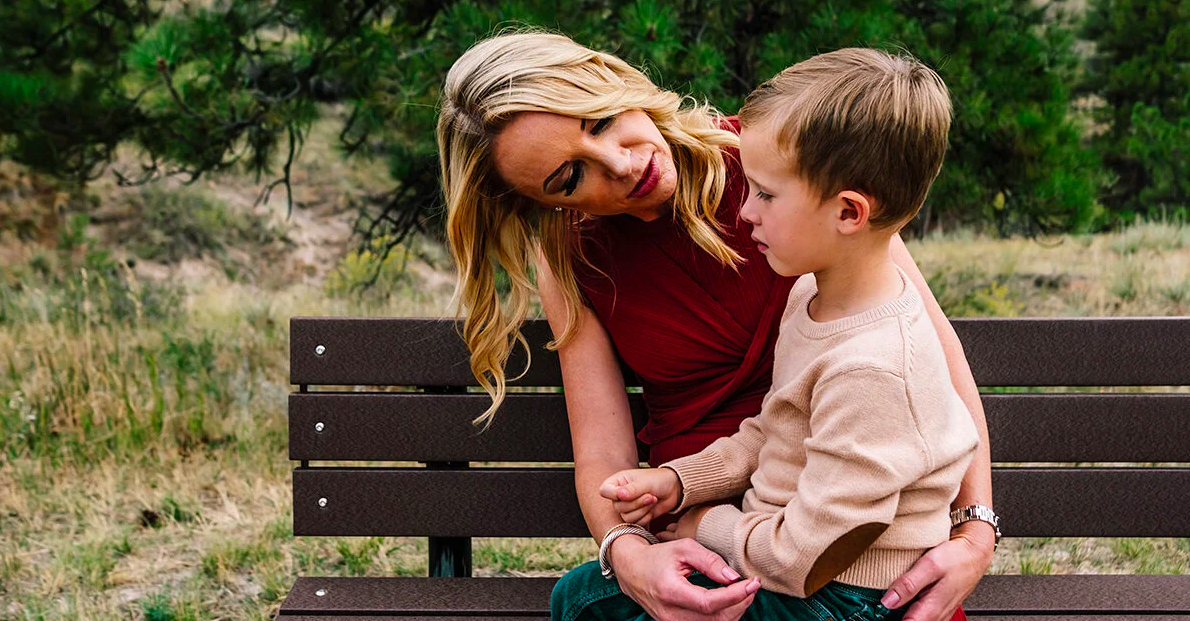It’s never easy telling a child that a loved one has passed away.
But it’s a necessary conversation to have, and with some preparation and thought, you can make it a little easier.
Understanding a child’s perception of death
For very young children, death may only be understood as a temporary absence.
This can be confusing and frightening for children, but it’s good to be as honest and straightforward as possible.
Remain calm and let your child see how you’re feeling. They will be looking to you for clues about how to react and will take their cues from your emotional state.
In addition, infants and toddlers are perceptive and can sense their caregiver’s emotions even if they can’t understand the words being spoken. Be sure to provide plenty of physical comfort in the form of hugs and kisses, and try to maintain a sense of normalcy as much as possible.
Preparing and planning for the conversation
When someone dies, it’s natural for children to feel a range of emotions, including confusion and sadness.
It’s your job as a parent to help them through this difficult time by providing answers to their questions and helping them understand what has happened.
The best way to do this is to prepare yourself and plan for the conversation. Make sure you have all the facts straight so that you can provide information to your child.
And be prepared for their questions—you may not have all the answers, but do your best to answer them. Let them know that it’s okay to feel sad or scared—and that you’re there for them, no matter what.
Talking about death in plain and honest terms

Image Credits: healthline.com
Death is a difficult topic for any adult, let alone a child.
But it’s best to avoid euphemisms and use simple words to explain what has happened.
Children must understand that death is a natural part of life and that they’re not responsible for it. Be prepared for questions, and answer them factually. If you don’t know the answer, say so.
Encouraging a child to express feelings
Allow your children to express their feelings, whether they are sad, scared, or confused.
It can be helpful to model appropriate behavior by talking about your feelings. This will let them know it’s okay to talk about emotions.
Allow them to talk about the person who passed away and answer any questions they have as honestly as possible. But be aware of age-appropriate language and information. For example, if your child is very young, use words like “left this world” rather than “died.”
It can also be helpful to encourage them to write a letter or draw a picture of the person who passed away or keep something that belonged to them, like a favorite item or piece of clothing. This can be an effective way to provide some comfort during this trying time.
Maintaining routines and schedules
Maintaining a sense of normalcy and sticking to routines can be helpful for both you and your child.
While grief can cause disruption, making sure that bedtimes, meal times, and school activities remain consistent can help create a sense of security.
When introducing new activities or changes to the schedule, do so thoughtfully. As much as possible, explanations should include details about why the change is taking place and what to expect. This will help reduce any potential anxieties that may arise with unfamiliar events.
You may also want to create clearly defined parameters; providing structure in this way will help your child understand what is expected of them and foster feelings of safety and security. During difficult times like these, having these types of routines can provide some comfort for both you and your child as you navigate through a difficult loss together.
If you’re not good with words, it can be helpful to find books or stories about death that you can share with your child, as it can provide some comfort and explanation. Above all, be sure to provide plenty of support and reassurance to your child, and let them know that it’s okay to be teary. Let them know that it’s okay to talk about the death of a loved one and that you will be there to listen whenever they want to share.

